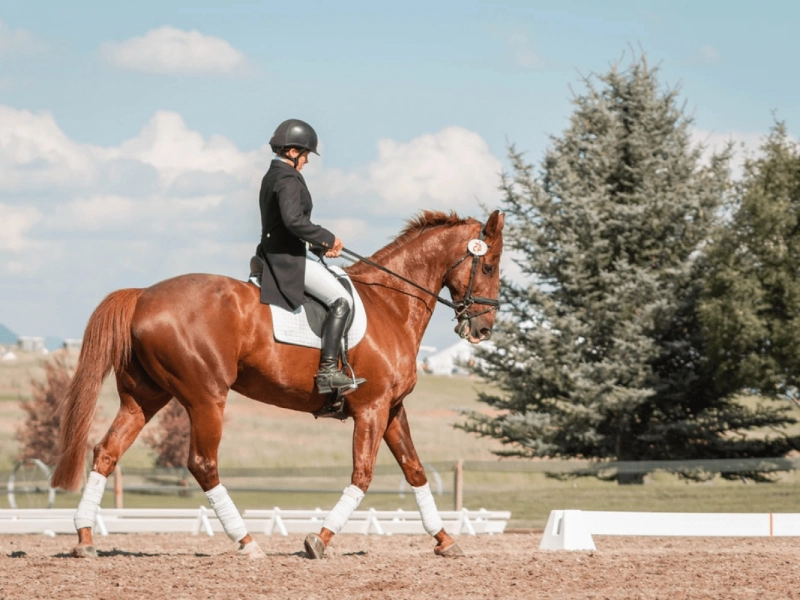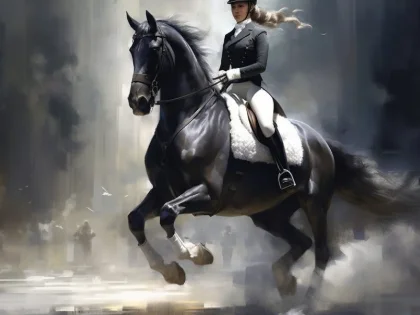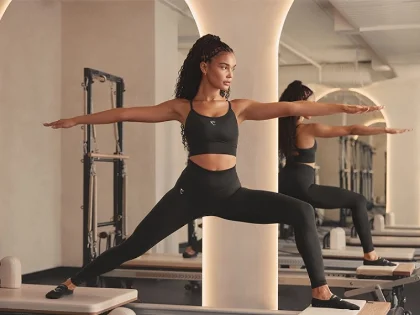Beginning Horseback Riding: Your Initial Steps in Equestrian Activities
Riding a horse is an active sport. Exercises that are excessively quick should be avoided by beginners, as they can throw them off balance while riding. Instead, they should begin with walking exercises. Gaining control and confidence is best achieved by developing skills over years, not months, at a time. This is the reason selecting a qualified instructor is so crucial.
Choose a riding school or trainer.

Seek a calm temperament in horses.
 For novices, riding can be a little difficult because it's a physically demanding sport that calls for a lot of balance and coordination. Finding a horse that is content, quiet, and willing to learn is so crucial.
You can find this by studying the horse's behavior during your initial rides. Do they snicker? This demonstrates their contentment and desire to follow you.
It's also critical to recognize that horses are sentient beings with thoughts and ideas just like your own. They will have positive days and bad days, and as a result, they may find it difficult to obey their rider's orders at times. Resilience and an optimistic outlook will help you overcome these challenges and establish a positive rapport with your equine companion. Providing your horse with a pleasant habitat, adequate housing, exercise, food, and medical care will help them develop these positive attributes.
For novices, riding can be a little difficult because it's a physically demanding sport that calls for a lot of balance and coordination. Finding a horse that is content, quiet, and willing to learn is so crucial.
You can find this by studying the horse's behavior during your initial rides. Do they snicker? This demonstrates their contentment and desire to follow you.
It's also critical to recognize that horses are sentient beings with thoughts and ideas just like your own. They will have positive days and bad days, and as a result, they may find it difficult to obey their rider's orders at times. Resilience and an optimistic outlook will help you overcome these challenges and establish a positive rapport with your equine companion. Providing your horse with a pleasant habitat, adequate housing, exercise, food, and medical care will help them develop these positive attributes.
Warm up your horse and yourself.
 It's critical that your instructor take the time to warm up both you and your horse as you get used to riding. This not only keeps you and your horse comfortable and prepared for the job ahead, but it also helps guard against injuries that could arise from not stretching enough.
After a few loops at the walk on either side, transition to the trot. In addition to warming up the joints and boosting circulation, this will assist your horse in stretching and oxygenating their muscles. Make sure to add flexion to each rein and establish a calm contact.
If necessary, ask for a transition to the canter when your horse warms up. While some horses perform better at trotting first, others might prefer to canter first. Everything is dependent on the discipline you and your horse will be training in. It is advisable to ask your instructor which warm-up is best suited for both you and your horse.
It's critical that your instructor take the time to warm up both you and your horse as you get used to riding. This not only keeps you and your horse comfortable and prepared for the job ahead, but it also helps guard against injuries that could arise from not stretching enough.
After a few loops at the walk on either side, transition to the trot. In addition to warming up the joints and boosting circulation, this will assist your horse in stretching and oxygenating their muscles. Make sure to add flexion to each rein and establish a calm contact.
If necessary, ask for a transition to the canter when your horse warms up. While some horses perform better at trotting first, others might prefer to canter first. Everything is dependent on the discipline you and your horse will be training in. It is advisable to ask your instructor which warm-up is best suited for both you and your horse.
Attend classes frequently.
 A novice may need a considerable amount of time to pick up the fundamentals of riding. A qualified teacher will collaborate with you to create a realistic plan and schedule that takes into account your innate abilities, the horse of your choice, and your dedication to consistent lessons.
As your skills improve, you'll be introduced to trotting and other activities. For humans, trotting is like jogging, and the horse will spring back with every step. It is a bouncy ride, so beginners should be ready for it. They should also be told to stay in a deep, solid two-point position.
In order to help novice riders comprehend the reasons behind their horses, a skilled riding instructor will place a strong emphasis on equine psychology and learning theory in their sessions. This will assist them in problem-solving compassionately rather than making snap decisions and responding emotionally. A caring bond with your horse is essential for successful and safe riding. Riders should handle this connection with respect and seriousness, as it calls for years, if not decades, of commitment.
A novice may need a considerable amount of time to pick up the fundamentals of riding. A qualified teacher will collaborate with you to create a realistic plan and schedule that takes into account your innate abilities, the horse of your choice, and your dedication to consistent lessons.
As your skills improve, you'll be introduced to trotting and other activities. For humans, trotting is like jogging, and the horse will spring back with every step. It is a bouncy ride, so beginners should be ready for it. They should also be told to stay in a deep, solid two-point position.
In order to help novice riders comprehend the reasons behind their horses, a skilled riding instructor will place a strong emphasis on equine psychology and learning theory in their sessions. This will assist them in problem-solving compassionately rather than making snap decisions and responding emotionally. A caring bond with your horse is essential for successful and safe riding. Riders should handle this connection with respect and seriousness, as it calls for years, if not decades, of commitment.









